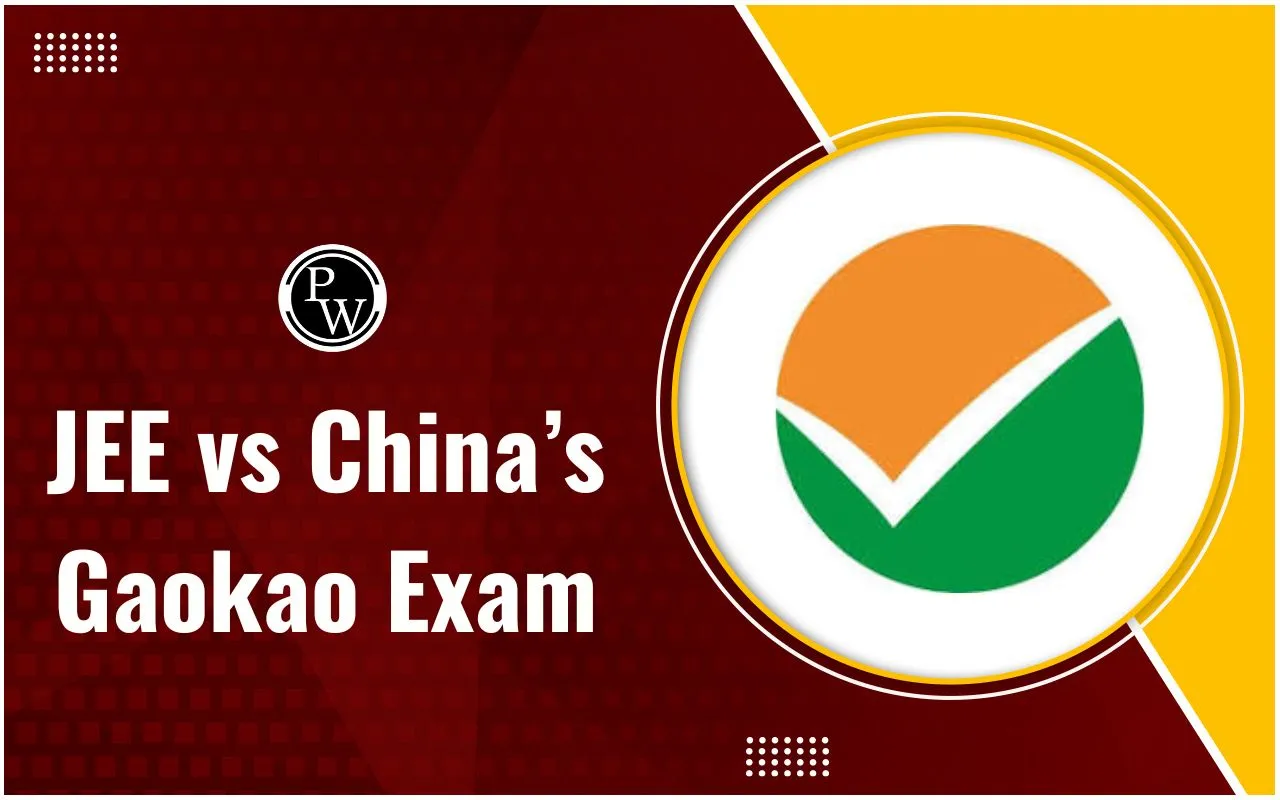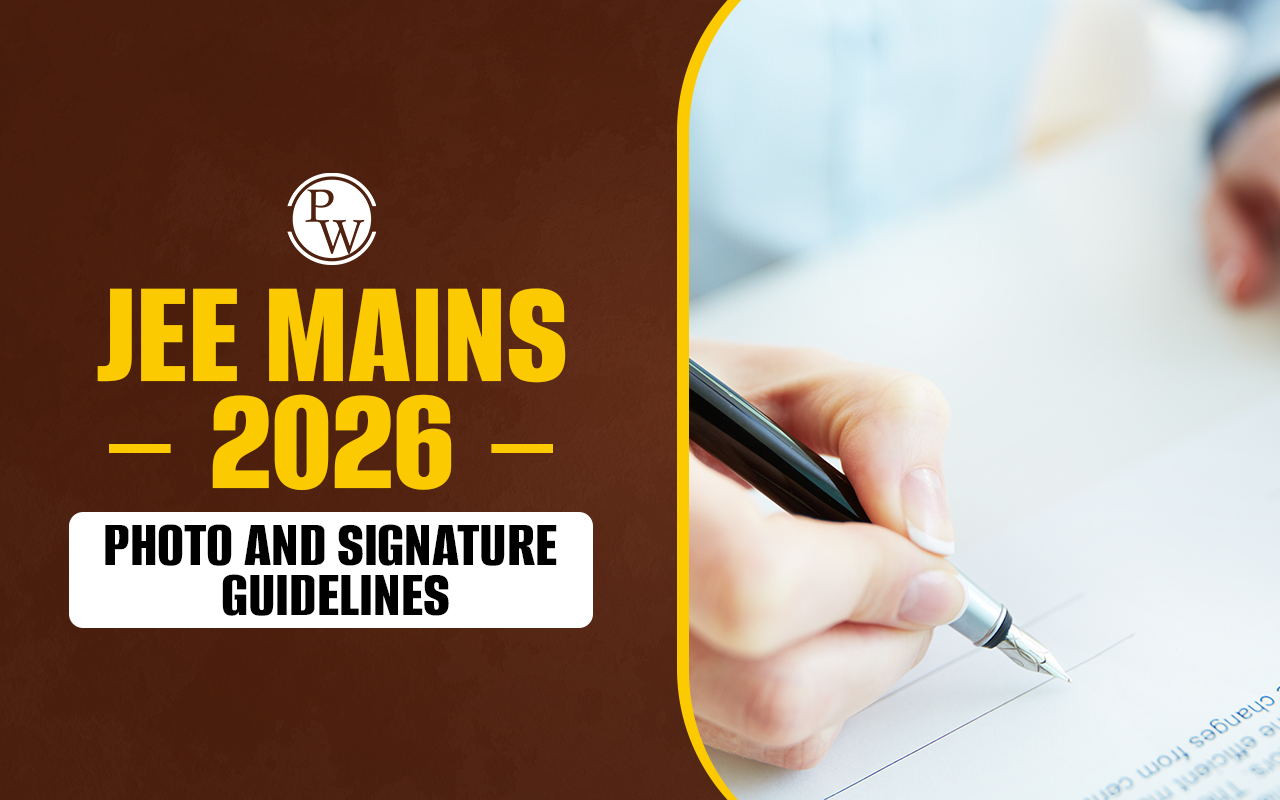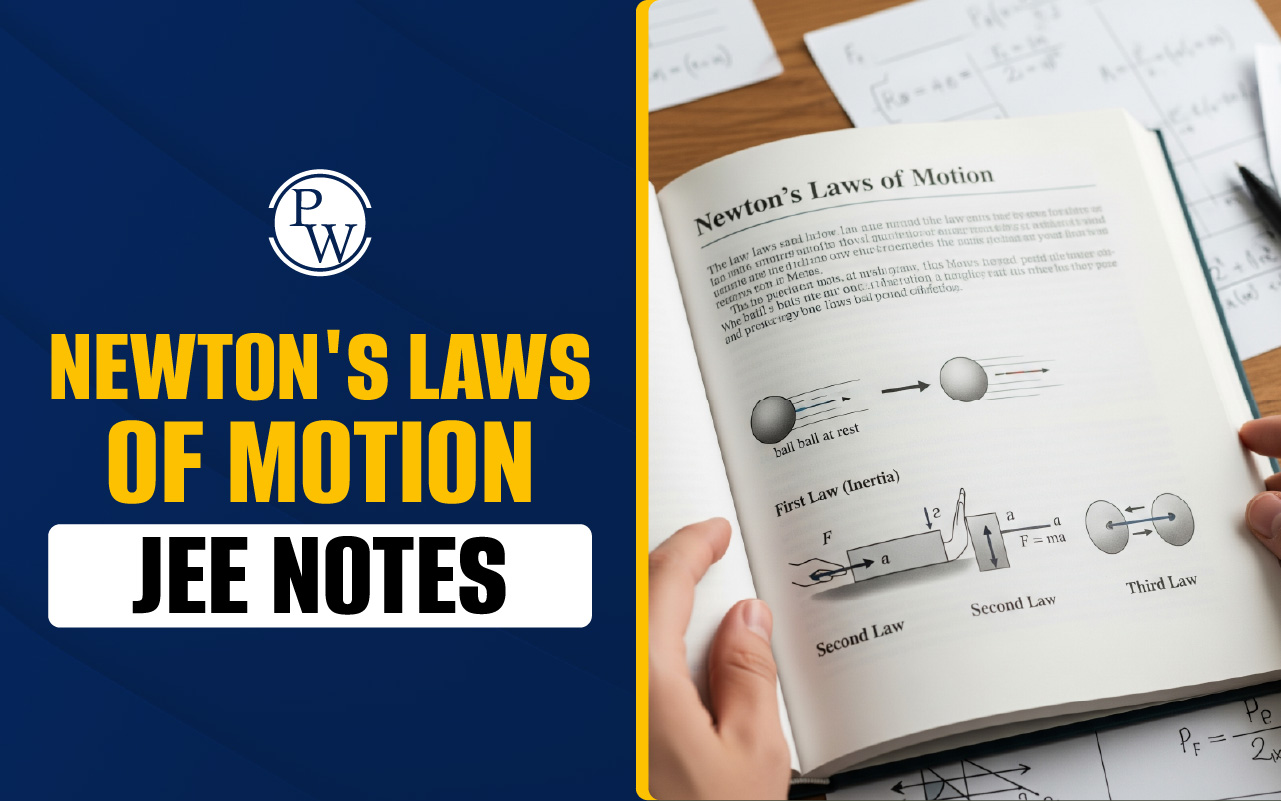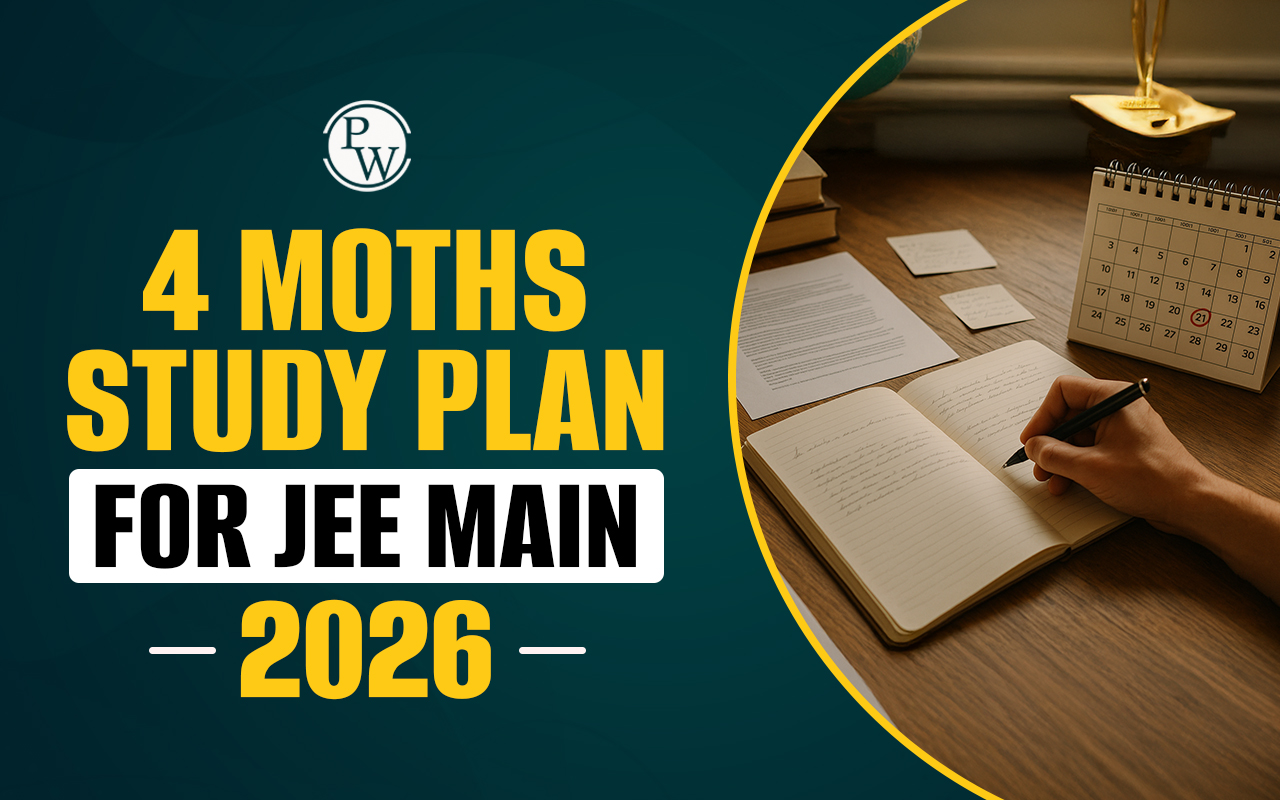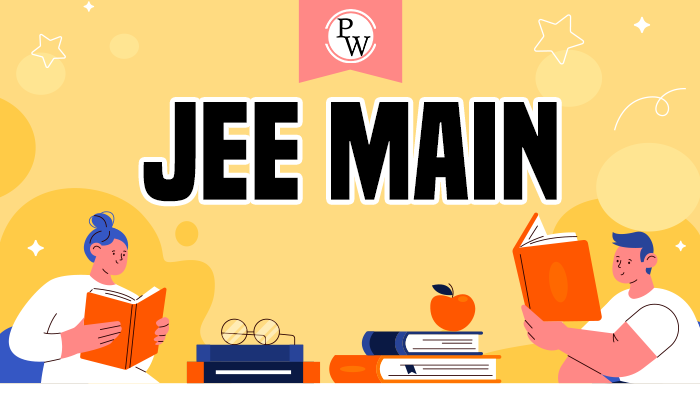
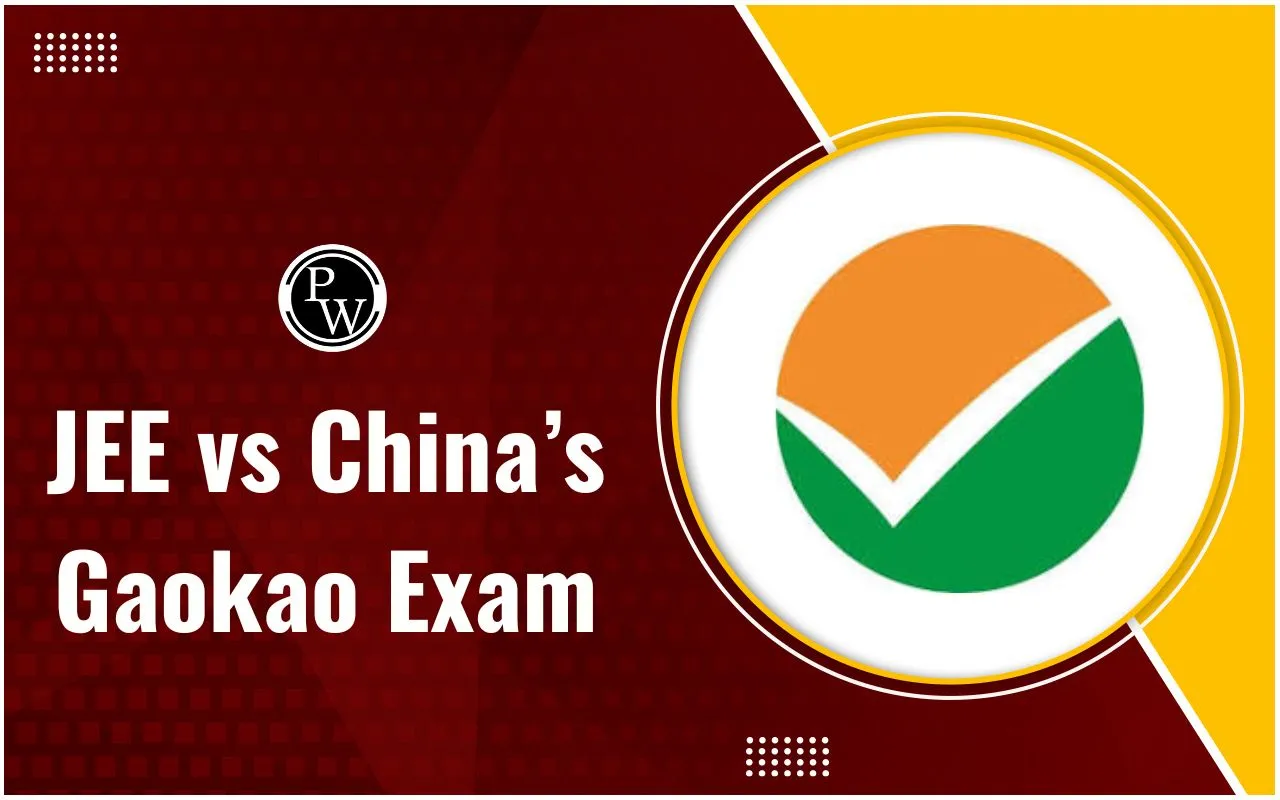
JEE vs China’s Gaokao: Every year, a countless number of students in India and China prepare for tough entrance exams to get into top colleges. In India, students take the JEE (Joint Entrance Examination), while in China, they appear for the Gaokao, officially known as the National College Entrance Examination (NCEE). The JEE vs China’s Gaokao exam is a common debate among students and experts. Many wonder which one is harder to crack. While both exams are held with the aim of providing admissions to students in various undergraduate courses, it is important to compare their exam formats, subjects, difficulty level, and competition to understand which is tougher between both.
India’s JEE vs China’s Gaokao- Which is Harder to Crack?
Every year, about 85% of students who take the Chinese entrance exam, the Gaokao—the most hard exam in the world—qualify for undergraduate courses in China. However, securing a seat in top universities like Peking University or Xinjiang University is much tougher, with an acceptance rate of only 0.1%. On the other hand, in India, JEE Exam serves as the gateway to IITs, where only around 1% of aspirants manage to gain admission, making it one of the most competitive exams in the country.
Comparing JEE vs Gaokao: The World's Toughest Competitive ExamS
JEE and China’s Gaokao both serve different purposes and are considered the most difficult exams in the world. Where JEE focuses on testing students' conceptual understanding and problem-solving skills, Gaokao evaluates students on a wide range of subjects to determine their eligibility for higher education. One of the key differences is the preparation approach. For the Chinese entrance exam, Gaokao, exam preparation is integrated into high school studies, whereas in India, students often begin dedicated preparation for JEE two to four years in advance. Additionally, JEE Main/Advanced has a much higher number of participants due to its nationwide reach and multiple attempts, making the competition even tougher.
To learn more about these world's toughest competitive exams, JEE vs China's Gaokao, let's compare their key aspects one by one.
- India’s JEE vs China’s Gaokao: Exam Purpose and Scope : The purpose of both exams is to help students enter higher education, but they serve different groups of students. Gaokao is a nationwide college entrance exam in China that allows students to apply for various university programs, including science, humanities, and other fields. On the other hand, JEE Main/Advanced exams are specifically for engineering aspirants in India. It is the first step toward securing admission in prestigious institutions like IITs, NITs, and IIITs.
- JEE vs Gaokao: Exam Eligibility Requirements : The JEE and Gaokao exams eligibility criteria differ significantly. JEE requires students to have completed or be appearing for Class 12 from a recognized board, with no age limit for JEE Main. However, JEE Advanced has age restrictions and allows only two consecutive attempts. To qualify for JEE Advanced, students must either score at least 75% in Class 12 (65% for SC/ST) or rank in the top 20 percentile. In contrast, Gaokao has no age or educational restrictions, allowing anyone to register. However, it is generally taken by high school seniors in their final year. The exam is conducted once a year, and students can attempt it multiple times.
- JEE vs China’s Gaokao: Type of Examination : Gaokao is a broad academic test that includes multiple subjects. Every student must take Chinese, Mathematics, and a Foreign Language. Additionally, they choose between Science (Physics, Chemistry, Biology) or Humanities (History, Politics, Geography). This makes the Gaokao a more generalized exam. JEE Main, however, is a specialized test focusing only on three subjects—Mathematics, Physics, and Chemistry. For those aiming to enter IITs, JEE Advanced is the next stage, which is even more difficult and tests problem-solving skills at a higher level.
- Gaokao vs JEE: Level of Difficulty : Both exams are considered tough, but in different ways. The Gaokao exam syllabus is vast and requires extensive memorization. Students must remember a lot of facts, and the exam requires them to write long, detailed answers. The pressure is high because the results play a major role in determining their future studies. The Syllabus of JEE Main, on the other hand, is more focused on understanding concepts and applying them to solve problems. It is not about memorization but rather about strong analytical and problem-solving skills. JEE Advanced, which follows JEE Main, is even tougher and demands deep thinking and a creative approach to solving questions.
- JEE vs China’s Gaokao: Duration of Exams : Gaokao is a multi-day exam, and its total duration is around nine hours, spread over two to three days, depending on the province. Each subject is tested separately, and students have to complete long papers, making the exam physically and mentally demanding. JEE Main, on the other hand, is much shorter. It is a three-hour exam that students must complete in a single sitting. JEE Advanced, for those who qualify, consists of two separate three-hour papers held on the same day. This makes time management a key challenge in JEE.
- JEE vs China’s Gaokao: Frequency of Exam : China's Gaokao exam is held only once a year in June, which means students get only one chance annually to appear for the exam. JEE Main is conducted twice a year, allowing students to improve their scores in case they do not perform well in their first attempt. JEE Advanced, the second stage for IIT admission, is held only once a year.
- JEE vs China’s Gaokao: Number of Applicants : The number of students appearing for these exams is very different. The Gaokao is one of the largest exams in the world, with over 12 million students appearing for it every year. Since it is the main university entrance exam in China, almost all high school students take it. JEE Main, in comparison, has around 1.5 to 2 million applicants each year. Out of these, only about 200,000 qualify for JEE Advanced, which further reduces the number of students competing for IIT admissions. While Gaokao has a larger number of test-takers, the competition in JEE is also intense because of the limited seats in top engineering colleges.
- JEE Main/Advanced vs Gaokao Exam: Subject Coverage : The subjects covered in both exams are quite different. JEE Main as well as Advanced focuses only on three subjects: Mathematics, Physics, and Chemistry. The Gaokao exam syllabus, on the other hand, covers a wider range of subjects. All students must take Chinese, Mathematics, and English. Additionally, students taking China's Gaokao exam are required to choose either Science (Physics, Chemistry, Biology) or Humanities (History, Geography, Politics). This makes the Gaokao a more diverse exam, as students need to study multiple fields depending on their career goals.
Gaokao vs JEE: Format of Exams
The way questions are asked in these exams is also different. The JEE Main Exam Pattern is mostly multiple-choice based, with some numerical questions where students need to type their answers. The JEE Advanced exam format is more challenging, with complex numerical problems requiring deep conceptual understanding. The Gaokao exam pattern, however, includes a mix of multiple-choice and long-answer questions. Students often have to write essays and detailed explanations, especially in subjects like Chinese and Humanities. This makes the Gaokao more focused on memorization and writing skills, while JEE emphasizes logical thinking and problem-solving.
IIT JEE vs China’s Gaokao: Marking Scheme
In JEE Main, each correct answer is awarded 4 marks, while 1 mark is deducted for every incorrect response. Unattempted questions do not affect the final score. Numerical answer type (NAT) questions follow the same pattern but usually do not have negative marking. In JEE Advanced, the marking scheme varies yearly as per the exam pattern set by IITs. Usually, multiple-choice questions have full, partial, or negative marking depending on the question type. Some sections, such as matching-type questions, carry +1 mark for each correct match without penalties for incorrect matches.
China’s Gaokao exam questions, on the other hand, are scored out of 750, though subject weightage and total marks differ across provinces. The scoring pattern differs based on the subject, requiring students to perform well across multiple areas to secure a strong overall score.
JEE vs Gaokao Exam: Reservation System
In India, JEE follows a reservation system as per government policies. Students from reserved categories like SC, ST, OBC, EWS, and PwD get specific seat reservations in colleges.
Gaokao does not have a structured reservation system like JEE, but some regional policies exist. Students from rural areas or ethnic minority groups may receive certain benefits, such as lower cut-off scores or special consideration in university admissions.
JEE vs China’s Gaokao: Exam Recognition on an International Level
JEE scores are mainly used for admission within India. However, some foreign universities, particularly in Singapore, the UAE, and Australia, accept JEE Advanced scores for admission to engineering programs.
Gaokao is becoming more widely accepted by universities worldwide. Institutions in France, Germany, Italy, and the United States now consider Gaokao scores in their admission process, offering Chinese students greater chances to study abroad based on their exam performance.
JEE vs China’s Gaokao: Number of Attempts
JEE Main is held twice a year, and applicants can attempt it in three consecutive years after passing their class 12 examination. This means they have a total of six attempts to improve their scores.
Additionally, JEE Advanced can be attempted twice in consecutive years, giving students another chance to qualify for top engineering institutes.
In contrast, China's Gaokao has no official limit on the number of attempts. Students can retake the exam as many times as they wish, which contributes to its high participation rate.
IIT JEE vs China’s Gaokao Exam: Process of College Admission
JEE admissions are managed through a centralized counseling process called JoSAA (Joint Seat Allocation Authority). Based on ranks, students choose from available colleges and courses.
Gaokao follows a centralized admission system as well. Students fill in their preferred universities, and based on their scores, they are assigned colleges through an automated process.
JEE vs Gaokao: Language Options
JEE is available in multiple languages to accommodate students from different regions of India. JEE Main can be taken in Hindi, English, and 13 regional languages, providing flexibility to candidates.
JEE Advanced, on the other hand, is conducted only in English and Hindi, and students can choose their preferred language at the start of the exam or switch between the two during the test.
Gaokao is conducted mainly in Mandarin Chinese, as it is the official language of China. This means students must be proficient in Mandarin to perform well in the exam.
JEE vs China’s Gaokao: Exam Conducting Body
JEE Main is conducted by the National Testing Agency (NTA), while JEE Advanced is managed by IITs on a rotating basis. The Indian government sets policies for conducting the exams and admissions.
Gaokao is directly controlled by the Chinese Ministry of Education. The exam format, scoring, and admission process are strictly regulated by the government, making it a highly standardized national exam.
JEE vs China Gaokao FAQs
Q.1 : Is China's Gaokao tougher than India's JEE?
Q.2 : Is JEE one of the hardest entrance exams in the world?
Q.3 : Which exam has more competition, JEE Main or Gaokao?
Q.4 : JEE Main vs China's Gaokao, which has the maximum number of attempts?
Q.5 : JEE Main vs Chinas Gaokao, which exams scores are accepted by foreign universities?

